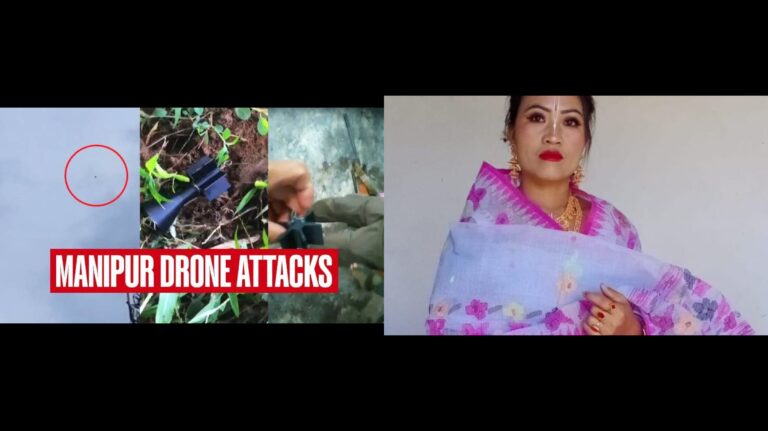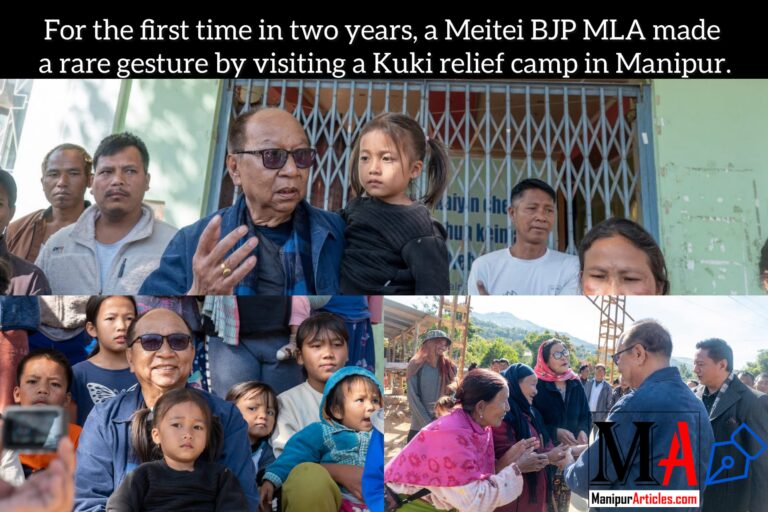Border Tensions Escalate: KYKL and KCP Cadres Killed in Manipur-Myanmar Clash
News Summary
In a significant escalation of border tensions, a deadly clash occurred along the Manipur-Myanmar border involving cadres from the Kanglei Yawol Kanna Lup (KYKL) and the Kangleipak Communist Party (KCP). The confrontation resulted in multiple fatalities among the insurgent groups. This incident underscores the ongoing volatility in the region, raising concerns about cross-border insurgency and the challenges faced by security forces in maintaining peace and stability.
In-Depth Analysis: The Manipur-Myanmar Border Clash and Its Implications
Understanding the Insurgent Groups: KYKL and KCP
The Kanglei Yawol Kanna Lup (KYKL) and the Kangleipak Communist Party (KCP) are insurgent groups operating primarily in the northeastern state of Manipur. Both organizations have been involved in various activities aimed at asserting their ideological and political objectives, often resorting to armed struggle.
- KYKL: Established with the aim of restoring the sovereignty of Manipur, KYKL has been involved in numerous insurgent activities, including attacks on security forces and extortion.
- KCP: The KCP seeks to establish a socialist state in Manipur and has been implicated in various acts of violence and disruption.
These groups have historically utilized the porous Indo-Myanmar border to facilitate their operations, taking advantage of the challenging terrain and limited security presence.
The Strategic Significance of the Manipur-Myanmar Border
The Indo-Myanmar border, stretching over 1,600 kilometers, is characterized by dense forests and rugged terrain, making it a challenging area to monitor and secure. This geographical complexity has been exploited by various insurgent groups to establish camps and launch operations across borders.
The recent clash highlights the strategic importance of this border region and the necessity for enhanced surveillance and cooperation between India and Myanmar to address the insurgency problem effectively.
The Clash: A Detailed Account
While specific details of the clash remain limited, reports indicate that the confrontation between the insurgent groups and security forces resulted in multiple casualties among the KYKL and KCP cadres. The incident underscores the ongoing threat posed by these groups and the challenges faced by security personnel in counter-insurgency operations.
The clash also raises questions about the operational capabilities of these insurgent groups and their ability to regroup and launch attacks despite ongoing security measures.
Security Measures and Government Response
In response to the incident, security forces have likely intensified operations along the border region to prevent further infiltration and to dismantle insurgent networks. The government may also engage in diplomatic discussions with Myanmar to enhance cross-border cooperation and intelligence sharing.
Efforts to bolster infrastructure and surveillance capabilities in the border areas are essential to curtail the movement of insurgent groups and to ensure the safety of local populations.
The Role of Local Communities
Local communities play a crucial role in maintaining peace and security in the border regions. Community engagement and development programs can help in building trust between residents and security forces, thereby facilitating better intelligence gathering and cooperation.
Empowering local populations through education, employment opportunities, and infrastructure development can also reduce the appeal of insurgent ideologies and recruitment.
The Broader Implications
The clash between insurgent groups and security forces in the Manipur-Myanmar border region has broader implications for regional stability and security. It highlights the persistent challenges posed by insurgent activities and the need for comprehensive strategies that encompass military, diplomatic, and socio-economic dimensions.
Addressing the root causes of insurgency, such as political disenfranchisement, economic disparities, and cultural grievances, is essential for achieving lasting peace in the region.
❓ FAQs
Q1: What are the primary objectives of the KYKL and KCP insurgent groups?
A1: The KYKL aims to restore the sovereignty of Manipur, while the KCP seeks to establish a socialist state in the region. Both groups have engaged in armed struggle to achieve their goals.
Q2: Why is the Manipur-Myanmar border significant in the context of insurgency?
A2: The border’s challenging terrain and limited security presence make it a strategic area for insurgent groups to operate, facilitating cross-border movement and the establishment of camps.
Q3: How has the Indian government responded to insurgent activities in the region?
A3: The government has implemented security operations, enhanced surveillance, and engaged in diplomatic efforts with neighboring countries to address insurgent threats.
Q4: What role do local communities play in counter-insurgency efforts?
A4: Local communities are vital for intelligence gathering and cooperation with security forces. Community development programs can also reduce the appeal of insurgent ideologies.
Q5: What are the broader implications of the recent clash for regional security?
A5: The clash underscores the ongoing threat of insurgency in the region and the need for comprehensive strategies that address military, diplomatic, and socio-economic factors to ensure lasting peace.


